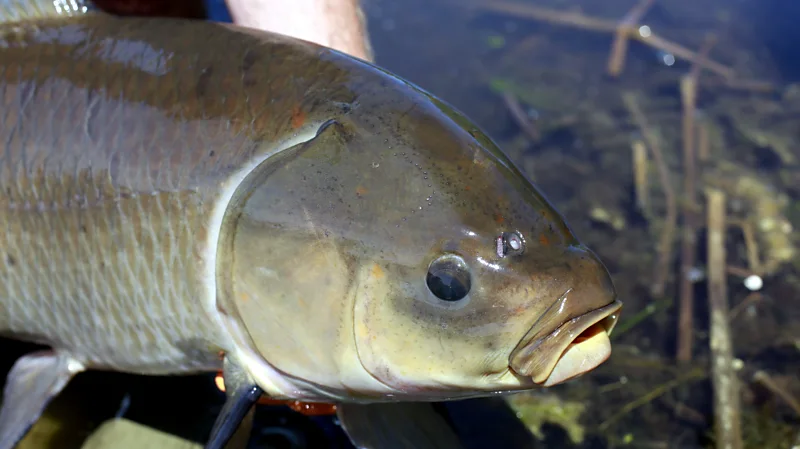
Recent findings show bigmouth buffalo fish have perplexingly long lives and appear to get healthier as they age. But scientists are worried their population is about to crash.
If you ever find yourself on the shores of Minnesota’s Rice Lake in May time, you may be able to spot swarms of large fish bodies mingling among the wild rice plants in water barely a few feet deep.
These are bigmouth buffalo fish, and they are the world’s longest-lived freshwater fish. Some live for over 100 years.
Every year, these huge fish – which can weigh more than 50lb (23kg) – traverse through Rice River to spawn and reproduce in the lake. But the regularity of this spawning belies a hidden conservation concern: for more than six decades now, no new generations of young fish here have made it to adulthood.
Bigmouth buffalo have remained understudied for decades. In the last few years, however, scientists have begun to realise how unique these huge and incredibly long-lived fish truly are – even as they also uncover how imperilled they may be.
The first bigmouth buffalo I aged was almost 90 years old. I was like ‘wow, holy smokes’ – Alec Lackmann
Bigmouth buffalo fish are native to North America and can be found from Southern Saskatchewan and Manitoba in Canada all the way down to Louisiana and Texas in the US. They’re often viewed by the public and anglers as “rough fish” – a long-lived but non-scientific term used to imply that they’re not particularly desirable – since they’re not commercially fished and therefore not economically important.
It’s this view of bigmouth buffalo that has long led them to be overlooked by scientists. Over the last five years, however, researchers have made a spate of new and surprising discoveries about them.
For one thing, individuals have been documented to reach up to 127 years of age, making them the world’s longest-lived freshwater fish. They also don’t seem to decline biologically with age. Most recently, researchers have realised that their stable population sizes over recent decades could be thanks to the fact that these old fish are not dying, even as they fail to produce young that survive into adulthood.
The few experts who study these fish worry that a severe drop in their population may be imminent, if not unavoidable. What’s clear from the research so far is just how little we know about bigmouth buffalo, and how many unanswered questions remain.
“It’s one of the oldest populations of animal in the world, and there’s no management or protection of the species,” says Alec Lackmann, a fish researcher at the University of Minnesota, Duluth, and one of the foremost experts on bigmouth buffalo fish and their ageing.






